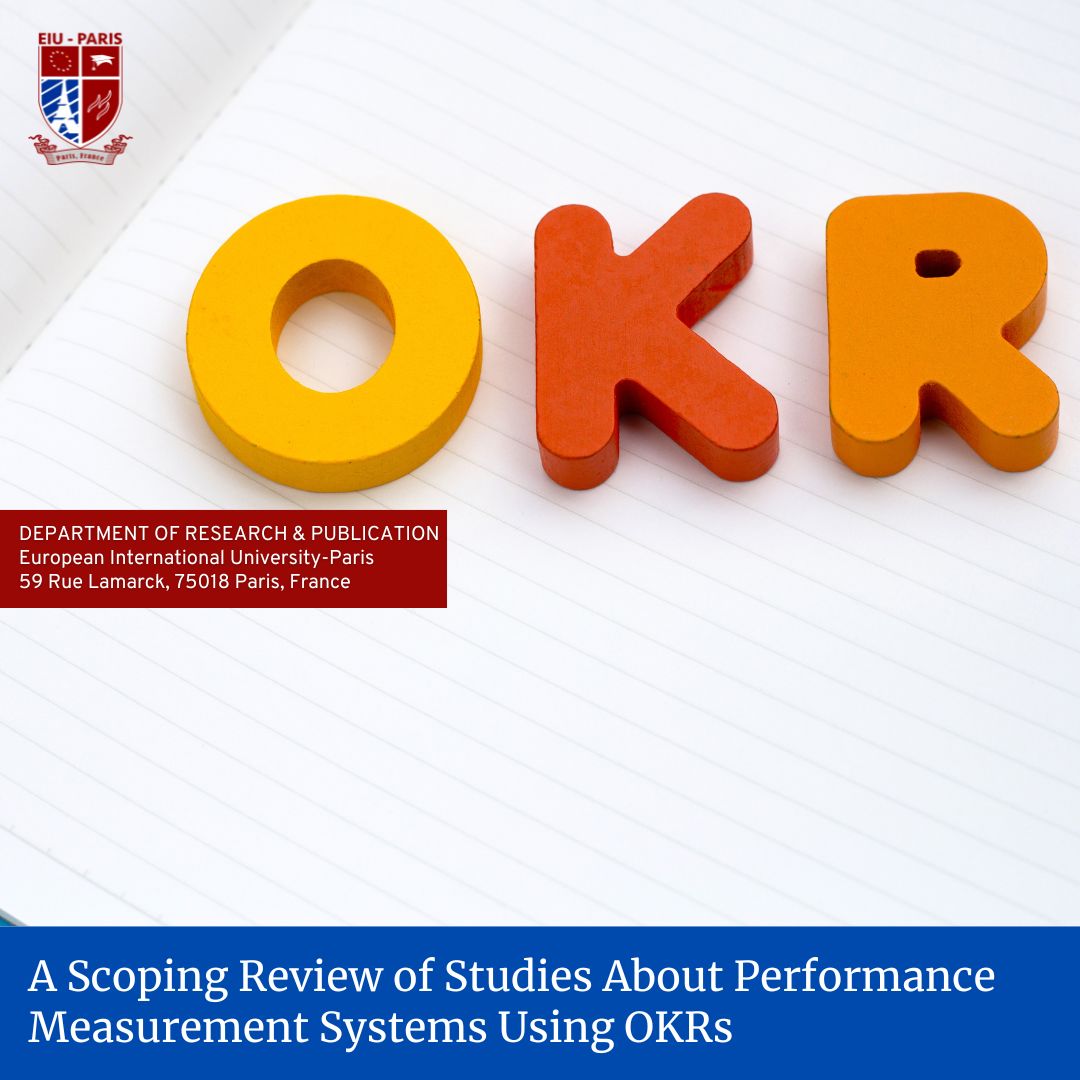- Version
- Download 39
- File Size 684.75 KB
- File Count 1
- Create Date January 2, 2025
- Last Updated January 6, 2025
A Scoping Review of Studies About Performance Measurement Systems Using OKRs
Objectives: Objectives Key Results (OKRs) have become an increasingly popular approach for setting goals and measuring performance, especially in technology companies and startups. However, academic research on OKRs is still limited. This scoping review aims to provide an overview of existing studies on performance measurement systems using OKRs and identify knowledge gaps to inform future research.
Methods: A systematic search was conducted across Google Scholar databases to find relevant articles published from Since 2020-2023. Additional studies were identified through hand searches and expert recommendations. Articles were included if they empirically examined the implementation or outcomes of OKR-based performance measurement, in any type of organization. Extracted data included study context, objectives, methods, key findings, and limitations.
Results: The searches identified 2,420 records, of which 20 studies met the inclusion criteria after screening. Most studies were qualitative (e.g. case studies, interviews). The key aspects examined across the studies were OKR goal setting processes, perceived benefits of OKRs, implementation challenges, and impact on employee engagement. Reported benefits included increased alignment, transparency, autonomy, accountability, and Motivation. However common problems were unrealistic goals, loose accountability, and evaluation tool misuse. There was little examination of long term or objective organizational impacts.
Conclusions: Despite growing interest, rigorous empirical research on OKR-based performance management is still lacking. Significant knowledge gaps remain regarding objective outcomes, effective implementation strategies across organization types, integration with other systems, and longitudinal impacts over time. More quantitative and mixed methods studies are needed on larger, more representative samples. Contextual factors enabling the successful adoption of OKRs also require further investigation. This scoping review provides insights to guide both academics and practitioners in advancing research and evidence-based practice on OKR goal setting approaches.

Danai Srijunchai EIU-PARIS

